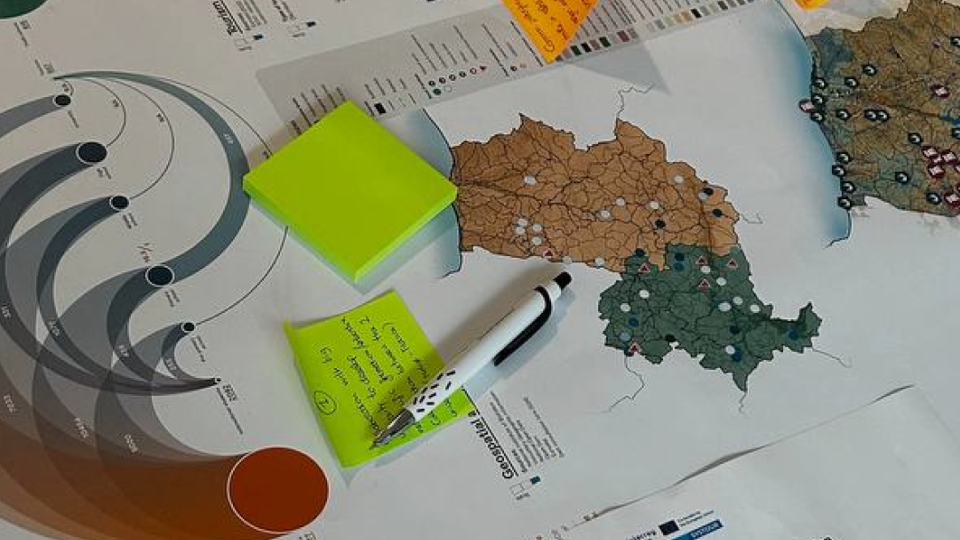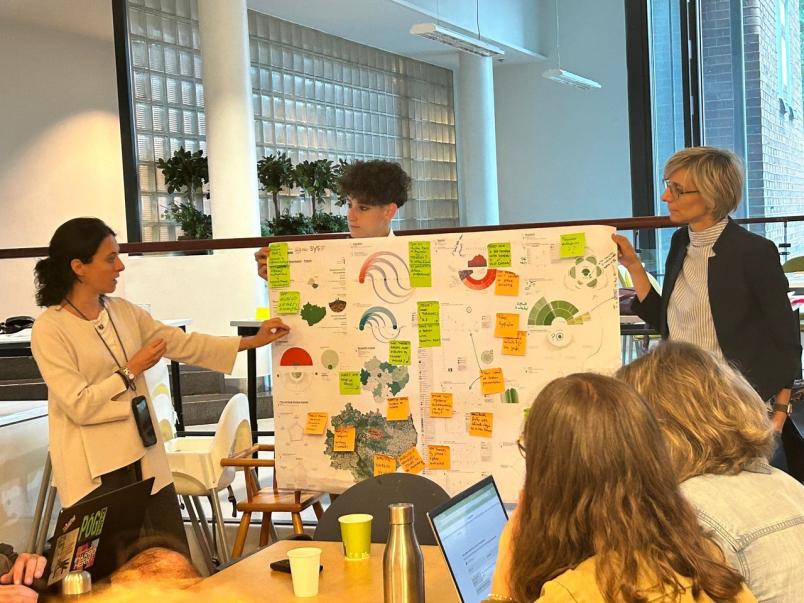
Getting to know the territory and working for its development

Knowing the field of action, sharing experiences and good practices, developing good local policies and activities. SYSTOUR European project, coordinated by PoliTO Department of Architecture and Design-DAD, applies this method to promote sustainable tourism. It can be a model of a common effort of research and local institutions, aimed at sharing good practices for concrete issues.
SYSTOUR (Systemic approach for sustainable tourism strategies in rural areas) is funded by the European program Interreg, officially kicked off on March 2023. It will last for the next four years and involves PoliTO as Lead Partner, together with other 6 public and private partners, plus over 90 European stakeholders – from Italy, Spain, France, Hungary, Poland, and Finland. Molise Region is its Italian public partner.
"It all stems from DAD's research on regenerative tourism and the use of the systemic design approach for territorial challenges, on which we already cooperated with Piedmont Region and its UNESCO District – explains Silvia Barbero, scientific coordinator of the initiative – The goal we had, and are still chasing, is to broaden our experience for understanding how to help the tourism sector develop in sustainably, going beyond the mere quantity of tourists, which affects the territorial balance by often altering its features and creating a real stress on local residents, as well as on the structures and the environment".
The project began with an intense area study, then collecting data for each region involved from a geographical, economic, social and cultural perspective – technically named Holistic Survey, meaning a comprehensive study of the areas involved.
"Having the most exact and reliable understanding of 'what's there' in the field is key to know better which policies are needed to improve territorial use without generating negative effects and, rather, producing positive ones – comments Asja Aulisio, a researcher at DAD who is closely following the project – Starting from this data collection, the department produced a series of maps of the territory, visually representing its situation, the available resources, their location and any possible interrelations".

Meanwhile, Italian Regions started the collection of good practices in the field of tourism, which have then been shared in recent months via a web portal and during partner meetings. These good practices will be the cues for new local policies. The communication phase, specifically, is one of the main project hubs: only by sharing information and valuable action cues can appreciable results be achieved. For this reason, several dissemination meetings have been organized around Italy and other partner countries: the next one will be held on October 14.
The involvement of stakeholders will also be key for the whole project duration: those working daily on the territory in the field of tourism, besides policymakers. To get to know, to share, to grow together - as said above - tackling common work with concrete goals. With Politecnico providing, as coordinator, the innovative methods and tools to be used to avoid ineffective, outdated, or inefficient practices. Pursuing an overall goal: to dismantle an approach causing the exploitation of a given territory to the point of permanently impoverishing it.
Molise Region positively acknowledged Politecnico's contribution, together with the opportunity for international assessments. Maria Tirabasso, project manager for Molise regional administration, stresses: "We immediately accepted Politecnico’s proposal because it seemed to be an enriching opportunity in terms of knowledge and new approaches towards the territory and other issues we were already dealing with. The advantage we grasped lies in the possibility of benefiting from PoliTO research capacity and from a working method we lacked. Also significant was the comparison with the best practices of other partners".
Clearly, working in a European setting and with different stakeholders generated some complexities, but "it was precisely the will to share and put everyone on the same level that made the difference". Besides all this, stakeholders’ involvement was a key element. Roberto D'Amico, SYSTOUR Project Manager for Molise Region, adds, "The Interreg framework allowed the tangible presence of those working every day on the territory: a decisive step for the knowledge of good practices, their dissemination and the production of new policies. The presence of the LAGs (Local Action Groups) is a concrete example of this".